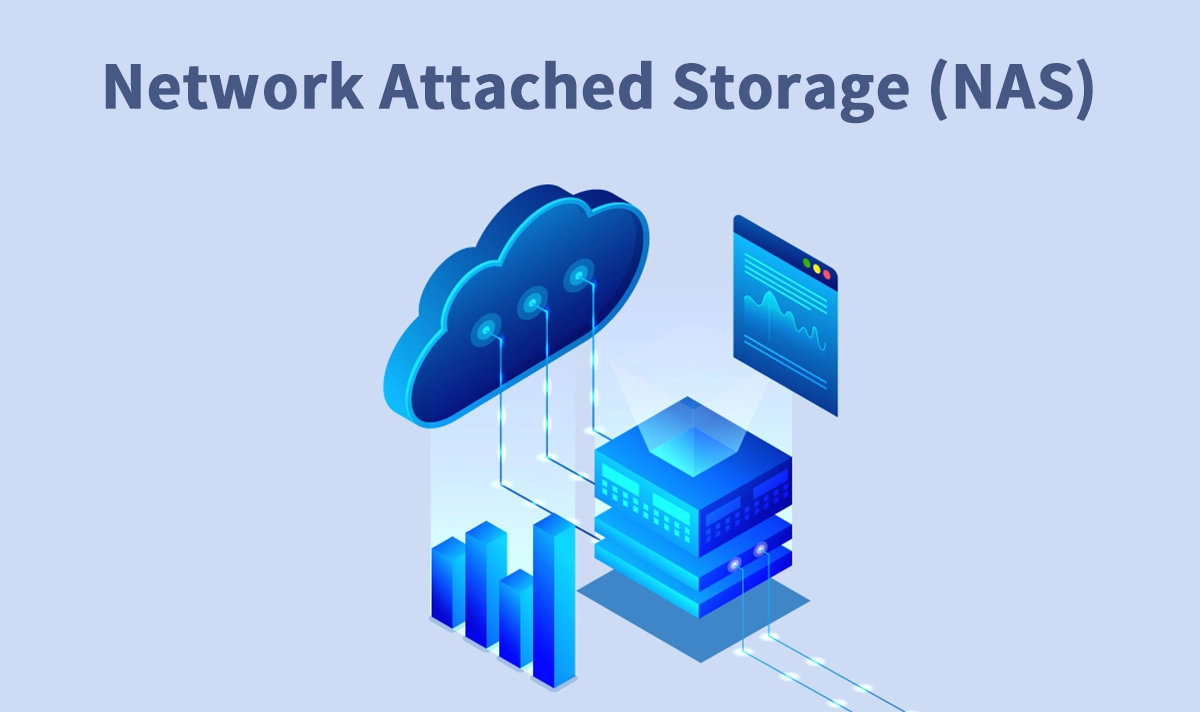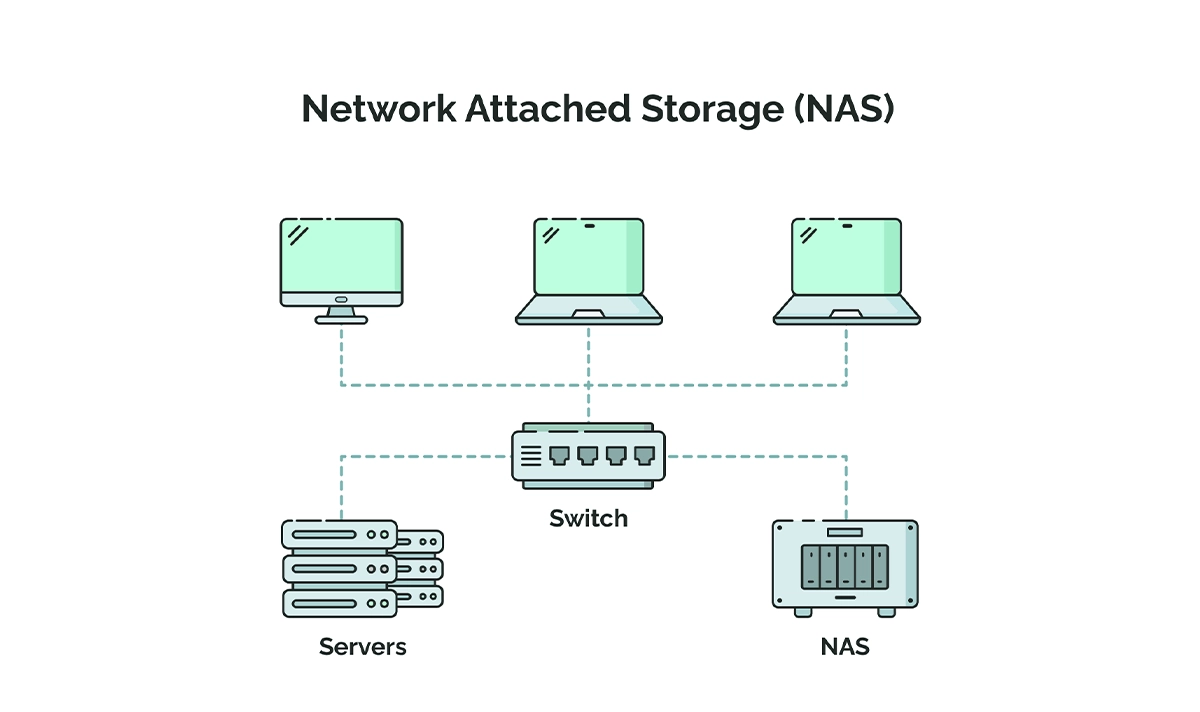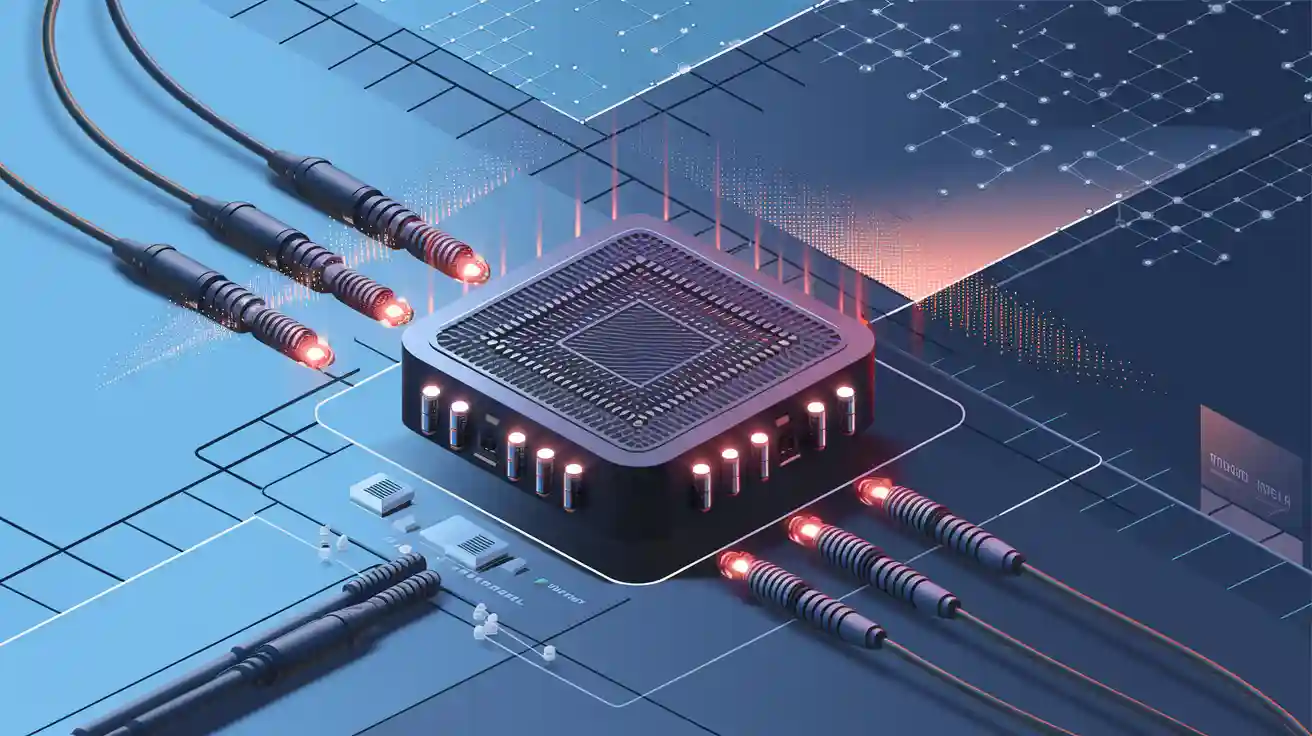
You use network attached storage when you want an easy way to keep and share files on your network. Network attached storage, often called NAS, works like a smart hard drive that connects to your home or office network. You can get to files on network attached storage from any device on the same network. NAS lets you save, back up, and share photos, videos, or documents without trouble. When you set up network attached storage, you make one main place for your important data. NAS gives you control and helps you keep your files safe.
➣ Key Takeaways
Network Attached Storage (NAS) is a smart device. It connects to your network. You can store and share files from any device.
Setting up NAS is easy. You connect it to your router. You make folders and add users. You can give users special permissions for file access.
NAS keeps your files safe and neat. It is great for backing up important data. You can share big files without using email.
Pick a NAS with enough space for your files. Make sure it has strong security features. This helps protect your data and control who sees it.
NAS saves money compared to cloud storage. You buy it once and do not pay monthly fees.
➣ What Exactly is a NAS?
A Network Attached Storage (NAS) device is a dedicated file storage system that connects directly to your local area network (usually via Wi-Fi or Ethernet). Think of it as a personal, mini data center for your home or business.
Unlike an external hard drive that plugs into one computer, a NAS is independent and accessible by multiple users and devices simultaneously. It has its own operating system for managing files, users, and applications, making data sharing and backup a breeze.
➣ Why Do You Need a NAS? 5 Key Benefits
Benefit | Description |
|---|---|
📁 Centralized Storage | One place for all your files—documents, photos, videos, and music. Everyone in your household or team can access them from any device. |
🛡️ Robust Data Protection | Most NAS systems support RAID configurations. This means your data is mirrored across multiple drives, so if one fails, you don't lose anything. |
☁️ Personal Cloud | Access your files from anywhere in the world with an internet connection. Take back control from third-party cloud services. |
💾 Effortless Backups | Automate backups for all your PCs, Macs, and mobile devices to a single, secure location. |
🎥 Media Server Power | Stream your massive movie and music library directly to your smart TV, game console, or phone without lag. |
➣ Who is a NAS For?
Home Users & Families: Perfect for storing family photos, backing up computers, and streaming media.
Freelancers & Remote Workers: A secure and reliable hub for project files and client work.
Small & Medium Businesses (SMBs): An affordable solution for shared file storage, collaborative workspaces, and server hosting.
Creative Professionals & Gamers: Store massive libraries of 4K video footage, design assets, or games.

➣ Leveling Up Your NAS: The Role of High-Speed Connectivity
For most home users, a standard Gigabit Ethernet connection is sufficient. However, professionals working with large files (like 4K video editors or data scientists) need more speed to prevent bottlenecks.
This is where 10GbE (10 Gigabit Ethernet) NAS systems come in. To achieve these blazing-fast speeds, you need more than just a fast NAS and a 10GbE switch. You need the right optical transceiver modules to act as the critical bridge for your data.
For maximum performance and reliability in a 10GbE setup, using a high-quality module like the LINK-PP SFP-10G-SR is essential. This specific 10G optical module ensures low latency and stable, high-bandwidth transfer, making tasks like editing video directly from the NAS feel seamless.
Pro Tip: When searching for compatible 10G SFP+ modules for NAS, always ensure they are certified to work with your specific NAS brand (Synology, QNAP, etc.) to avoid compatibility issues.
➣ Getting Started with Your First NAS
Ready to jump into the world of smart storage? Here’s a quick checklist:
Assess Your Needs: How much storage do you need now? Future-proof by planning for more.
Choose Your Bay: A 2-bay NAS is great for starters (offering RAID 1 mirroring). Consider 4-bays or more for expandability and more complex RAID options like RAID 5 or RAID 6 for better performance and redundancy.
Select Your Drives: Invest in NAS-rated hard drives (like WD Red or Seagate IronWolf). They are built for 24/7 operation and constant read/write activities.
Consider Future Speed: If you think you'll need faster transfers, look at NAS devices with an open PCIe slot. This allows you to add a 10GbE network card later, for which you would need a compatible SFP+ transceiver like the LINK-PP LS-MM8510-S3C.
➣ Conclusion: Is a NAS Right for You?
A Network Attached Storage (NAS) device is more than just a hard drive; it's a versatile, powerful, and secure solution for managing the ever-growing mountain of digital data we all create. It gives you the convenience of the cloud with the control and security of local storage.
Whether you're a family looking to preserve memories, a creative professional moving huge files, or a business needing reliable shared storage, a NAS system provides a compelling answer.
➣ FAQ
What can you store on a NAS device?
You can store photos, videos, documents, and music on a NAS device. It works like a digital locker for your files. You can also use it for backups and sharing files with others.
What makes NAS different from a regular external hard drive?
NAS connects to your network, not just one computer. You can access files from many devices at the same time. You also get user controls and sharing options that a regular hard drive does not offer.
What do you need to set up a NAS at home?
You need a NAS device, hard drives, a power source, and a router. You connect the NAS to your network. You follow the setup guide using your computer or phone.
What happens if a hard drive fails in your NAS?
Many NAS devices support RAID. If one drive fails, your data stays safe on the other drives. You can replace the bad drive and restore your files. Always check your NAS for backup options.
What security features does a NAS offer?
A NAS gives you password protection, user accounts, and sometimes encryption. You can set who can see or change files. Some NAS devices include antivirus tools for extra safety.


